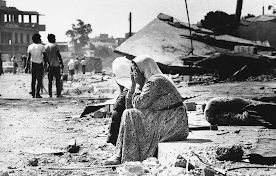In this kind of careful, deliberate prose, Israel's official commission of inquiry described the dreadful events of the three days last September when Israelis allowed Lebanese Phalangist soldiers to enter the Sabra and Shatila Palestinian refugee camps in Beirut, where the Christian militiamen proceeded to murder between 700 and 800 Arabs. After four months of testimony and deliberation, the Israeli commission last week delivered its report on the Beirut massacre, and it proved to be a stinging indictment of Defense Minister Ariel Sharon and several military officials, concluding that they shared an "indirect" responsibility for what happened in the Beirut camps. The report assigned only a "certain degree" of blame to Prime Minister Menachem Begin, but it recommended that Sharon either resign or be dismissed. It was also highly critical of three top commanders and a military intelligence official who were involved in the Israeli occupation of West Beirut.
The report, described by the Jerusalem Post as a "political earthquake," set off shock waves throughout Israel and indeed throughout the world. It was hailed in the U.S. and Western Europe as a remarkable example of self-criticism by a democratic society. Said the New York Times: "How rare the nation that seeks salvation by revealing such shame." In France, Interior Minister Gaston Defferre remarked, "This report is the honor of Israel. It gives the world a new lesson in democracy." The Italian Communist paper L'Unita called the report "a turning point for Israel," while Italian Journalist Arrigo Levi wrote in La Stampa of Turin: "It would be difficult to find any other nation at war that would let itself be subject to such an open and hard self-criticism."
The U.S. cautiously avoided any public comment on the report. Said President Reagan: "I just don't think we should be commenting or injecting ourselves into that internal problem." Nonetheless, some Administration officials privately expressed hopes that the commission's findings could, by reducing Sharon's influence, lead to a lessening of the increasingly pernicious tension that has recently permeated U.S.-Israeli relations.
~ William E. Smith, "The Verdict Is Guilty: An Israeli commission and the Beirut massacre," Time, February 21, 1983



No comments:
Post a Comment